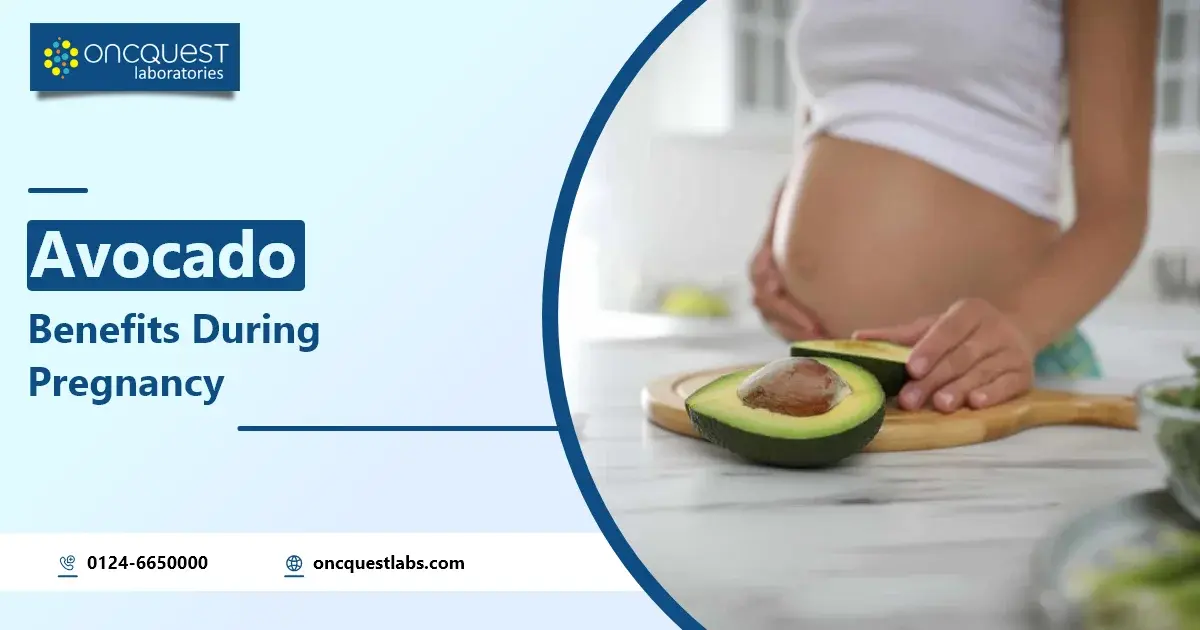Avocados, often celebrated for their creamy texture and rich flavor, are not only a popular ingredient in various dishes but also a nutritional powerhouse. During pregnancy, maintaining a well-balanced diet packed with essential nutrients is crucial for both the mother’s health and the baby’s development. Avocados stand out as an excellent food choice for expectant mothers due to their impressive nutritional profile and numerous health benefits.
This article aims to highlight the benefits of incorporating avocados into a pregnancy diet. From providing vital vitamins and minerals to supporting digestive health and reducing the risk of birth defects, avocados offer a wide range of advantages that can positively impact both mother and child. By understanding these benefits, pregnant women can make informed dietary choices that contribute to a healthy and nourishing pregnancy journey.
Contents
- 1 100g Avocado Nutrition
- 2 Avocado Benefits During Pregnancy
- 3 Side Effects of Avocado During Pregnancy
- 4 Avocado Pregnancy First Trimester
- 5 How to Eat Avocado During Pregnancy
- 6 Conclusion
- 7 FAQ
- 8 Is it safe to eat avocados during pregnancy?
- 9 How many avocados can I eat per day while pregnant?
- 10 Can avocados help with morning sickness?
- 11 Are there any side effects of eating avocados during pregnancy?
- 12 Can avocados improve my baby’s brain development?
100g Avocado Nutrition
| Nutrient | Amount per 100g | % Daily Value* |
| Calories | 160 kcal | 8% |
| Total Fat | 14.7 g | 22% |
| Saturated Fat | 2.1 g | 11% |
| Monounsaturated Fat | 9.8 g | N/A |
| Polyunsaturated Fat | 1.8 g | N/A |
| Cholesterol | 0 mg | 0% |
| Sodium | 7 mg | 0% |
| Potassium | 485 mg | 14% |
| Total Carbohydrates | 8.5 g | 3% |
| Dietary Fiber | 6.7 g | 27% |
| Sugars | 0.7 g | N/A |
| Protein | 2 g | 4% |
| Vitamins | 00 | 00 |
| Vitamin A | 7 µg | 1% |
| Vitamin C | 10 mg | 12% |
| Vitamin E | 2.1 mg | 10% |
| Vitamin K | 21 µg | 18% |
| Folate (Vitamin B9) | 81 µg | 20% |
| Vitamin B6 | 0.3 mg | 15% |
| Minerals | 00 | 00 |
| Calcium | 12 mg | 1% |
| Iron | 0.6 mg | 3% |
| Magnesium | 29 mg | 7% |
| Phosphorus | 52 mg | 5% |
| Zinc | 0.6 mg | 4% |
*% Daily Values are based on a 2,000 calorie diet. Your daily values may be higher or lower depending on your calorie needs.
This nutritional profile highlights why avocados are considered a highly beneficial food, especially during pregnancy. They are rich in healthy fats, fiber, vitamins, and minerals, all of which contribute to overall health and well-being.
Avocado Benefits During Pregnancy
Rich in Folate
Folate, also known as vitamin B9, is crucial during pregnancy as it helps prevent neural tube defects in the developing fetus. Avocados are a great source of folate, providing about 20% of the recommended daily intake per 100 grams. This nutrient supports healthy brain and spine development in the baby, reducing the risk of birth defects.
Healthy Fats
Avocados are high in monounsaturated fats, which are essential for the development of the baby’s brain and nervous system. These healthy fats also help in the absorption of fat-soluble vitamins like A, D, E, and K. For the mother, these fats support heart health and provide a steady source of energy.
High in Potassium
Potassium is important for maintaining proper electrolyte balance and reducing muscle cramps, which are common during pregnancy. Avocados contain more potassium than bananas, helping to manage blood pressure and reduce the risk of hypertension and preeclampsia.
Excellent Source of Fiber
Pregnancy often brings digestive issues like constipation. The high fiber content in avocados promotes regular bowel movements and overall digestive health. Fiber helps in maintaining a healthy gut, which is essential for both the mother and the developing baby.
Abundance of Vitamins and Minerals
Avocados are packed with vitamins and minerals that are beneficial during pregnancy:
- Vitamin K: Essential for blood clotting and bone health.
- Vitamin C: Boosts the immune system and aids in the absorption of iron, preventing anemia.
- Vitamin E: Protects cells from damage and supports skin health.
- Magnesium: Helps with muscle function and relaxation, reducing the risk of cramps.
Natural Remedy for Morning Sickness
The healthy fats in avocados can help reduce nausea and vomiting, common symptoms during the first trimester of pregnancy. Their creamy texture and mild flavor make them easy to eat even when experiencing morning sickness. Simple avocado-based recipes, such as avocado toast or smoothies, can be soothing and nutritious.
Supports Healthy Weight Gain
During pregnancy, it’s important to gain weight at a healthy rate. The nutrient-dense profile of avocados provides essential calories and nutrients without excessive unhealthy fats or sugars, supporting healthy weight gain for the mother and proper growth for the baby.
Boosts Immunity
The vitamins and antioxidants in avocados, particularly vitamins C and E, help strengthen the immune system. A strong immune system is crucial during pregnancy to protect both the mother and the developing baby from infections and illnesses.
Side Effects of Avocado During Pregnancy
Allergic Reactions
Some individuals may be allergic to avocados. Symptoms of an avocado allergy can include itching, swelling, hives, and, in severe cases, anaphylaxis. If you experience any allergic reactions after consuming avocados, it’s important to seek medical attention immediately.
High-Calorie Content
Avocados are relatively high in calories due to their fat content. While these fats are healthy, consuming too many avocados can contribute to excessive calorie intake, potentially leading to unwanted weight gain. It’s important to consume avocados in moderation as part of a balanced diet.
Gastrointestinal Issues
For some people, consuming avocados can cause gastrointestinal discomfort such as bloating, gas, or upset stomach. This may be due to the high fiber content in avocados, which can be difficult for some individuals to digest in large quantities.
Interaction with Medications
Avocados contain vitamin K, which plays a role in blood clotting. For pregnant women taking blood-thinning medications, such as warfarin, it’s important to monitor avocado intake, as vitamin K can affect the efficacy of these medications. Always consult with a healthcare provider if you are on any medication and plan to make significant dietary changes.
Latex-Fruit Syndrome
Individuals with latex allergies may experience cross-reactivity with certain fruits, including avocados. This condition, known as latex-fruit syndrome, can cause allergic reactions. Symptoms can range from mild itching and swelling to more severe reactions. Pregnant women with a known latex allergy should exercise caution when consuming avocados.
Nutrient Imbalance
While avocados are nutrient-dense, relying too heavily on them at the expense of other foods can lead to a nutrient imbalance. It’s important to maintain a varied diet to ensure a well-rounded intake of all necessary vitamins and minerals for both the mother and the developing baby.
Avocado Pregnancy First Trimester
During the first trimester of pregnancy, incorporating avocados into your diet can be highly beneficial. This period is crucial for the development of the baby, and avocados provide essential nutrients that support this process. Rich in folate, avocados help prevent neural tube defects in the developing fetus, making them particularly important during the early stages of pregnancy. Additionally, the healthy monounsaturated fats found in avocados are vital for the development of the baby’s brain and nervous system. These fats also aid in the absorption of fat-soluble vitamins such as A, D, E, and K, which are crucial for both maternal and fetal health.
Avocados are also an excellent source of potassium, which can help manage blood pressure and reduce the risk of preeclampsia, a concern during pregnancy. Their high fiber content aids in preventing constipation, a common issue in the first trimester, by promoting healthy digestion and regular bowel movements. Moreover, the creamy texture and mild flavor of avocados can help soothe morning sickness, providing a gentle and nutritious option for those experiencing nausea.
Incorporating avocados into your diet during the first trimester not only supports your overall health but also contributes significantly to the healthy development of your baby. They can be easily added to a variety of meals, making them a convenient and versatile choice for expectant mothers.
How to Eat Avocado During Pregnancy
Avocados into your pregnancy diet can be both delicious and beneficial for your health. There are numerous ways to enjoy this nutrient-rich fruit, ensuring you reap its benefits without monotony. One of the simplest methods is adding sliced or mashed avocado to your morning toast, providing a creamy, nutritious start to your day. Avocados can also be blended into smoothies with fruits like bananas and berries, creating a refreshing drink that’s packed with vitamins and healthy fats. For lunch or dinner, you can toss avocado chunks into salads or use them as a topping for soups and stews, enhancing the flavor and nutritional value of your meals. Guacamole, made with mashed avocado, lime juice, and a pinch of salt, serves as a healthy dip for vegetables or whole-grain crackers. Additionally, avocados can be used as a spread in sandwiches and wraps, replacing mayonnaise with a healthier alternative. By incorporating avocados in these varied ways, you can easily enjoy their benefits, such as improved digestion, better nutrient absorption, and support for your baby’s development, throughout your pregnancy.
Conclusion
Incorporating avocados into your pregnancy diet offers numerous health benefits for both the mother and the developing baby. Rich in essential nutrients like folate, potassium, healthy fats, and vitamins, avocados support fetal development, help manage blood pressure, improve digestion, and can even alleviate morning sickness. By enjoying avocados in various forms, such as in smoothies, salads, or as a spread, expectant mothers can easily boost their nutritional intake in a delicious and versatile way. Remember to consume avocados in moderation as part of a balanced diet to ensure a well-rounded intake of all necessary nutrients.
FAQ
Is it safe to eat avocados during pregnancy?
Yes, avocados are safe and highly beneficial to eat during pregnancy. They provide essential nutrients that support both maternal health and fetal development.
How many avocados can I eat per day while pregnant?
It’s generally recommended to eat half to one avocado per day to benefit from its nutrients without consuming too many calories or fats. Always consult with your healthcare provider for personalized advice.
Can avocados help with morning sickness?
Yes, the healthy fats and mild flavor of avocados can help reduce nausea and provide a soothing effect, making them a good choice for managing morning sickness.
Are there any side effects of eating avocados during pregnancy?
While avocados are generally safe, some potential side effects include allergic reactions, gastrointestinal discomfort, and possible interactions with blood-thinning medications due to their vitamin K content. It’s important to consume them in moderation.
Can avocados improve my baby’s brain development?
Yes, the monounsaturated fats in avocados are essential for the development of your baby’s brain and nervous system.





